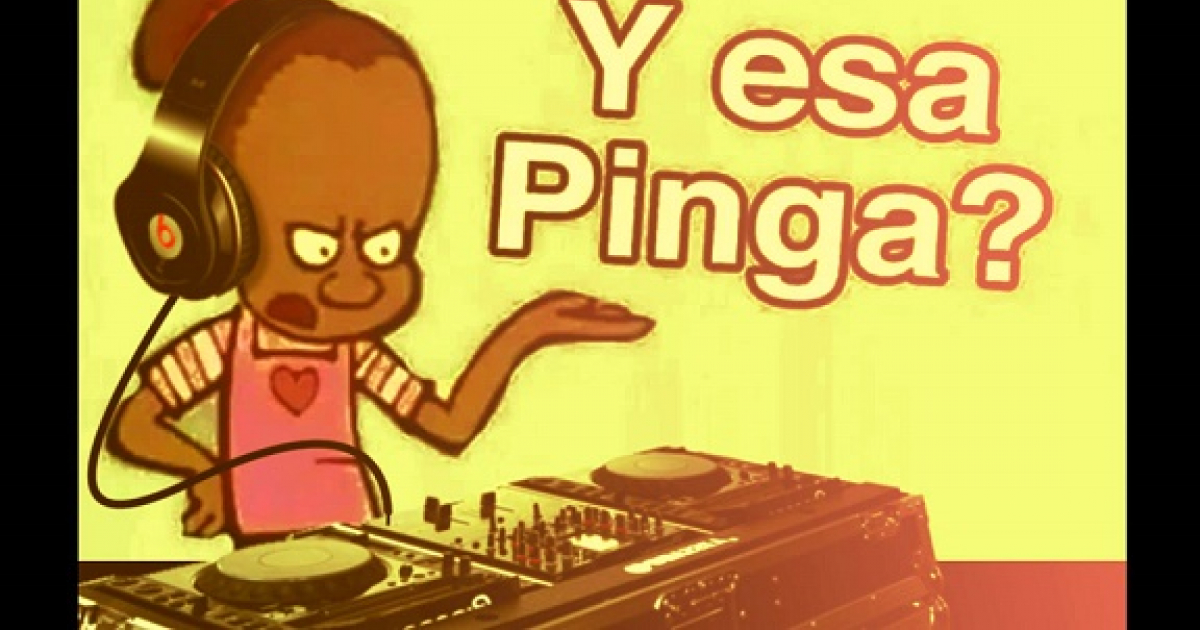
The prosaic and "flip-flop" tendencies of Cubans emerge at the slightest moment of fury, even from the most intellectual thinkers. Provoking an islander can sometimes be easier than it seems, and as such, the largest of the Antilles still boasts a long list of invectives for a thorough catharsis.
Among them stands out the supreme Cuban curse word, yes, the one you're thinking of, the first one that came to your mind: Pinga.
It turns out that "pinga" is apparently one of the most versatile words in the world, as it is used in various regions globally, though with different connotations. This has been highlighted by the well-known publication Playground, which released a video about the mutability of this term. The video has been removed from the Facebook platform, as it apparently "was bothersome" to some users.
Pinga is a very popular dance in India, a traditional choreography that is performed while repeatedly chanting that cheerful little word. In Switzerland, it strays even further from its mischievous connotation; there, the term is used to refer to a series of cartoons about penguins. We assume that pinga comes from the word penguin...
In China, as many Cubans already know, the word refers to that pole used to carry water that we often see in martial arts films. It is a long stick with a bucket on each end, carried over the shoulders to transport the precious liquid.
For the people of Rio de Janeiro, this expression refers exclusively to cachaza, an alcoholic beverage made in Brazil from the distillation of fermented sugarcane juice. This drink is also known as branquinha, caxaca, caxa, or chacha.
Well, there must be something obscene about the word "pinga," given that it is used in several Latin American countries to insult or refer to genitalia. This occurs in Panama, Peru, Venezuela, Chile, and Puerto Rico, to name a few, where insults like "You're a pinga-faced one," "What's wrong with you, pinga?" or "Go to hell" are commonly used.
While in these countries it is referred to in that way and used vulgarly for the male member, in Mexico, the term pinga or pingo is sometimes used to describe a very mischievous child. Similarly, in Mexicali, pinga refers to psychotropic medications (taking pingas), or when someone is very high, it is said that they are "really pingo" or "pinguiado."
In conclusion, in Galicia, "pinga" is also used as a verb to indicate that something is dripping or wet. For example, one might say "I'm dripping from the rain," or "that faucet drips," or "my nose is running from the cold."
These are some examples that we have researched so far. Do you know of other uses for the word pinga? Feel free to share them in the comments.
Frequently Asked Questions About the Use of the Word "Pinga" in Different Cultures
What does "pinga" mean in Cuba?
In Cuba, "pinga" is a very versatile word that is used to refer to the male genitalia and is also employed in various expressions to convey surprise, admiration, or anger, among other emotional states.
How is the word "pinga" used in other countries?
The word "pinga" has different meanings in various countries: in China, it refers to a stick used for carrying water; in India, it is a popular dance; in Switzerland, it is used for a series of cartoons about penguins; and in Brazil, it refers to the alcoholic drink cachaça.
Why was a video about the word "pinga" removed from Facebook?
The video about the word "pinga" was removed from Facebook because it was found to be offensive to some users, likely due to its vulgar connotations in certain cultures and Spanish-speaking regions.
How did Cubans react to the use of "pinga" in Galicia?
Cubans were surprised to find out that in Galicia, "pinga" refers to a drop or something that drips. In Cuba, the word has much more vulgar connotations, leading to a humorous cultural exchange on social media.
Filed under: